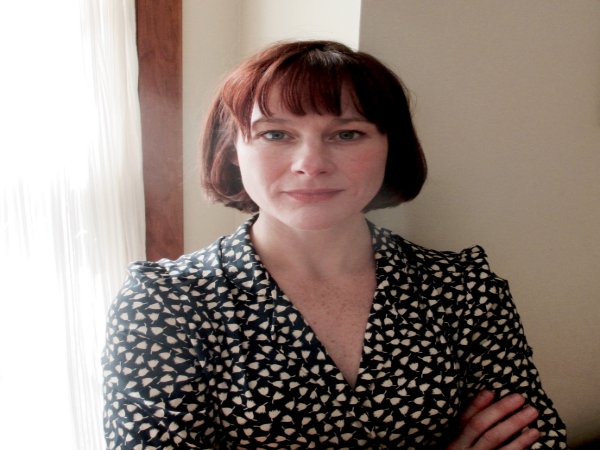Alison Powell: Pioneering Digital Innovation in Health, Environment, and Urban Design
Exploring the Intersections of Technology, Public Interest, and Sustainable Cities

Alison Powell is a leading thinker and researcher whose work bridges digital innovation, public health, urban design, and environmental sustainability. Her interdisciplinary approach integrates technology, ethics, and civic engagement to foster healthier communities and greener cities. With a sharp focus on startups within public health systems and pioneering projects aimed at designing cities that harmonize with nature—especially at night—Powell’s work highlights crucial themes of public interest, design, citizenship, reciprocity, and relationality. This article dives into her influential career, contributions, and insights, providing a comprehensive overview of Alison Powell’s impact on how we think about technology’s role in society.
Who is Alison Powell? A Brief Introduction
Alison Powell is an Associate Professor at the London School of Economics and Political Science (LSE), where she specializes in media, communications, and the societal implications of digital technologies. She is a respected academic, author, and thought leader in the field of data ethics, smart cities, and digital innovation. Powell’s research uniquely integrates social sciences with technological developments to explore how innovation can better serve public health systems, urban communities, and the environment.
Alison Powell’s Research Focus and Impact
Dynamics of Digital Innovation in Public Health
One of Powell’s core areas of research is the study of startups operating within public health systems. She critically analyzes how digital health startups promise scalable solutions but often clash with the complex realities of public health institutions like the NHS. Her scholarship stresses the importance of ethics, accountability, and civic engagement in health technology innovation, advocating for designs that genuinely serve the public good rather than purely commercial interests.
Designing Cities for People and Nature – Especially at Night
Powell’s work extends beyond health to include groundbreaking projects on urban design that prioritize ecological reciprocity and human well-being. She has been involved in initiatives such as “Rewilding the Night,” which focuses on sustainable lighting in cities to support biodiversity and enhance citizens’ experience of urban nature during nighttime. This innovative approach underscores the need for relationality between humans and their environments and challenges traditional urban design norms.
Key Themes in Alison Powell’s Work
Public Interest and Ethical Innovation
At the heart of Powell’s research lies a commitment to the public interest. She pushes for innovation frameworks that are transparent, participatory, and responsive to societal needs. Her advocacy for data citizenship empowers individuals and communities to have greater control over how their data and technologies are used.
Citizenship and Reciprocity in Digital Societies
Powell explores how digital technologies can foster new forms of citizenship rooted in reciprocity and mutual care. Her participatory methodologies invite communities to co-create solutions, strengthening democratic engagement in the digital age.
Relationality and Design Thinking
Her interdisciplinary perspective emphasizes relationality — the interconnectedness between people, technology, and the environment. Through design thinking, she encourages holistic approaches that respect these relationships and aim for sustainable, inclusive innovation.
Alison Powell: Personal Life and Background
While Alison Powell’s professional contributions are well documented, less is publicly known about her personal life. Information about her exact age and family details is not widely available, as Powell maintains a private personal profile focused on her academic and research work. This discretion is common among scholars who prefer to keep their professional achievements at the forefront.
Alison Powell’s Net Worth: An Estimate
As an academic and researcher primarily affiliated with educational institutions and public research grants, Alison Powell’s net worth is not publicly disclosed. Academics in similar roles typically earn modest to moderate salaries depending on tenure and additional consulting or publishing work. Unlike celebrity entrepreneurs or tech executives, her wealth is more likely tied to intellectual capital and impact than to financial accumulation.
Alison Powell on Wikipedia and Beyond
Currently, there is no dedicated Wikipedia page specifically about Alison Powell, which is often the case with many academics who are highly influential in their fields but may not have widespread public profiles. However, her research can be found in academic databases, institutional pages, and publications. Her visibility is strongest within scholarly and policy-making circles related to digital innovation, data ethics, and urban design.
Alison Powell’s Contributions to Academia and Society
Undoing Optimization: Civic Action and Smart Cities
Powell’s notable publication, Undoing Optimization, critically examines the narratives surrounding smart cities and the supposed “efficiency” of digital solutions in public services. She challenges the techno-optimism prevalent in many startups and advocates for civic action and alternative approaches that foreground human values and public interest.
The Data Walk Methodology
An innovative participatory tool developed by Powell, the Data Walk methodology engages citizens in dialogue about data ethics by exploring data’s presence in urban spaces. This approach bridges the gap between abstract data policy and everyday lived experiences, fostering democratic awareness and ethical reflection.
The Future of Digital Innovation Through Alison Powell’s Lens
Alison Powell’s work continues to inspire a new generation of scholars, practitioners, and policymakers committed to ethical digital innovation. Her emphasis on relationality, reciprocity, and citizenship offers a hopeful roadmap for creating technologies and cities that support sustainable health, care, and environmental outcomes. As digital innovation accelerates, her research provides vital insights into ensuring that progress is aligned with the public good.
Conclusion
Alison Powell stands out as a critical voice in the intersection of digital innovation, health, environment, and urban design. Her interdisciplinary approach challenges the status quo, advocating for ethical, inclusive, and nature-conscious technologies and city planning. While her personal details remain private, her professional legacy in promoting public interest, citizenship, and relational design is clear and impactful. For those interested in how technology can better serve society and the environment, Alison Powell’s work is an essential resource and source of inspiration.



